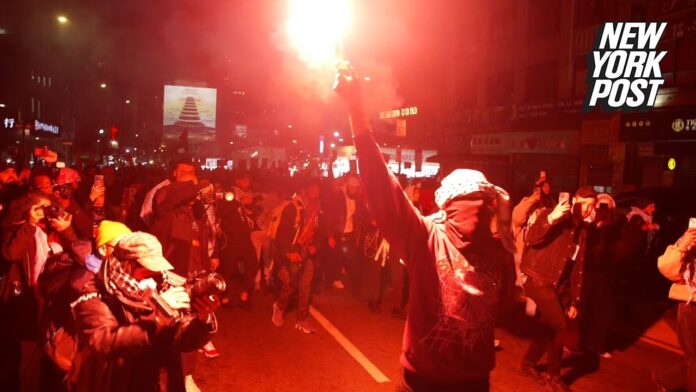anti-Israel protests escalate into anti-American sentiment, sparking concern over radicalization at demonstrations
The slogan “Death to America” is increasingly resonating among participants of anti-Israel protests across various US campuses, signalling a worrying shift in the tenor of these demonstrations. This development has been particularly notable at the University of Michigan, where protesters were seen distributing pamphlets espousing radical views.
During recent protests, students at the University of Michigan received pamphlets with contents that sharply criticize US foreign policy, linking support for Palestine with anti-American sentiment. These pamphlets, which argue that “Freedom for Palestine means Death to America,” have raised alarms about the intensification of extremist rhetoric at otherwise peaceful rallies.
Vanderbilt University’s Chancellor, Daniel Diermeier, has spoken out against the violence at these demonstrations, emphasizing that while free speech is protected, violent actions are not. The increasing visibility of “Death to America” chants has not only caught the attention of university administrators but also of law enforcement and public safety officials.
The spread of such slogans is not confined to educational institutions. In Dearborn, Michigan, similar sentiments were vocalized during a rally marking the end of Ramadan. These expressions of discontent have been linked to broader dissatisfaction with current US foreign policy, particularly in relation to Israel.
Amidst these developments, political figures and policymakers are taking note. The slogan has been tied to a broader critique of Democratic leaders’ perceived shift in stance regarding Israel. High-profile Democrats, including President Biden, have faced significant pressure to reassess their positions, especially following recent conflicts in Gaza.
This situation is further complicated by the political ramifications of these protests. Initiatives like “Listen to Michigan” and “Abandon Biden” have capitalized on local discontent, influencing political outcomes as seen in the significant number of “uncommitted” votes in Michigan’s Democratic Primary.
Community leaders in Dearborn, while acknowledging the presence of extremist voices, have emphasized that these do not represent the majority view. Imam Mohammad Ali Elahi of the Islamic House of Wisdom in Dearborn has publicly condemned the “Death to America” chants, advocating for messages of love over hate.
The rhetoric surrounding these protests and the visible support for extremist ideologies like those of Hamas and Hezbollah have prompted concerns about the influence of foreign actors, such as Iran, on American soil. This complex web of local grievances, international politics, and community dynamics illustrates the challenges facing communities in navigating these turbulent times
